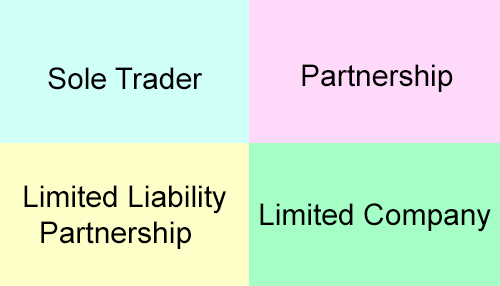Business structures are usually categorized into four types in the United Kingdom and in most parts of the world. However, in some countries, they may differ by the name of the entity, but the categories would remain the same in most cases. The four different types are as follows, and they are explained briefly so that you are able to understand the differences between them.
Business structures and definitions
A lot of people ask what the 4 major types of business structures are and their explanations. They are as follows:
1. Sole Trader:
This is usually considered one of the types that are easier to register and operate. It is because one person runs a business and everyone operating under it is employed with specific roles and responsibilities. Since you are able to keep all of the profits as income, you are responsible for any liabilities that arise out of them, if any.
2. Partnership:
These business structures are similar to those mentioned above. You have two or more people sharing the responsibility of the organization, with profits and losses shared between them. These can either be equally distributed or, based on their investment structure, a percentage is derived.
3. LLP (Limited Liability Partnership):
Business structures such as these are very similar to that of partnerships. The exception is that the liability of a partner is limited to the amount of money they have invested in the business. However, this requires the business to be registered with HMRC (Her Majesty’s Revenue and Commission) and the company house.
4. Limited Company:
This is a business structure that is owned by the shareholders of the business but is run by the board of directors. This also means that the company is a separate legal entity and has its own set of obligations to fulfill. They have their own rights, and the directors have separate roles and responsibilities in running the business. However, this company would also have to be registered with HMRC and the company’s house.
All of these 4 business structures require their own set of registrations, taxes, rules, regulations, and obligations and are bound by the rules of the country. There are separate regulations that you have to be aware of before you register with the respective government organizations. There are consultant services that can help you with the registration process of each of these four business structures in the country.



